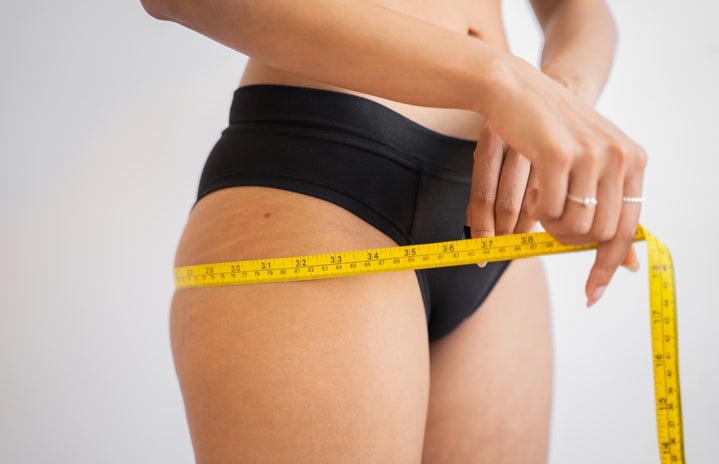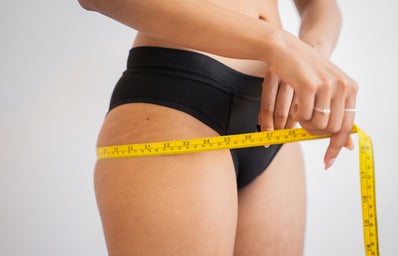Trigger Warning: This article may trigger individuals who have experienced thoughts of self-harm, disordered eating, and depression.
In the fluorescence of clothing store fitting rooms, brutally defeated by several pairs of jeans and the world’s most unflattering mirror, we’ve all been emotional about our bodies. Good or bad, positive or negative, our self-perception can easily revolve around our bodies and how they look.
“Love your curves!” “Celebrate your stretch marks!” “Embrace your imperfections!” These morsels of encouragement serve as beautiful campaigns and even prettier Instagram captions–but really, how realistic is it to suddenly change your outlook on yourself? Especially after a lifetime under the control of an omniscient, billion-dollar diet industry convincing you that your body is a constant and imperative project? Can you really look in that dressing room mirror and declare wholeheartedly, “I love everything about myself!”?
Here lies the fault of body positivity: embracing and admiring absolutely everything about your body can easily become yet another unrealistic body expectation. Perhaps, one day, it is achievable. But the movement has, unfortunately, been marketed as an immediate form of liberation, with scant mention of the mental and emotional labor required to become truly body positive. Ultimately, body positivity still relies on constantly thinking about and tethering yourself to your physical state.
“Some days we feel good about our body. Some days we feel bad about our body. But all days, we respect our body,” ex-fitness trainer Bethany Meyers tells the audience at her Bethune Street TED Talk. Body neutrality rejects the smothering, overwhelming body-love movement in favor of refocusing on what our bodies can do for us, not what they look like. Emerging into body image discourse around 2015, the body neutrality movement is regarded as an evolved version of self-loving practice; it requires neither negative nor positive feelings about your appearance. It’s neutral. It’s loving what our bodies can do for us. “I don’t necessarily love my lips, but my mouth allows me to express my thoughts.” “My thighs may not be slim and muscular, but with them I can walk, bike, and dance with my friends.”
Dr. Suzanne Manser, a licensed psychologist who specializes in body image, states that body neutrality can be a method to ultimately achieve body positivity. But it can also be a fulfilling and empowering end goal in itself; especially for those who are already in conflict with mental illness, self-harm, gender identity, or physical disability.
Shifting towards body neutrality is a gradual process of unlearning, but–true to the movement–has nothing to do with your body and all with your mind. Giving less importance to words and data about your body. Partaking in physical exercise to release endorphins and condition your mental state, not to achieve slimness. Seeing all food as a means of nourishment, not as rewards, sins, and cheat meals.
Body neutrality practices, like bodies themselves, are different for every individual. Maybe to some, exerting a reasonable amount of mental and physical labor towards a certain body goal is warranted and healthy. To others, simply thinking about their body is dreadful in any capacity and so they choose not to. Both philosophies are acceptable and subject to change under the principles of body neutrality. But most importantly, both prioritize the person inside and the accomplishments within.



